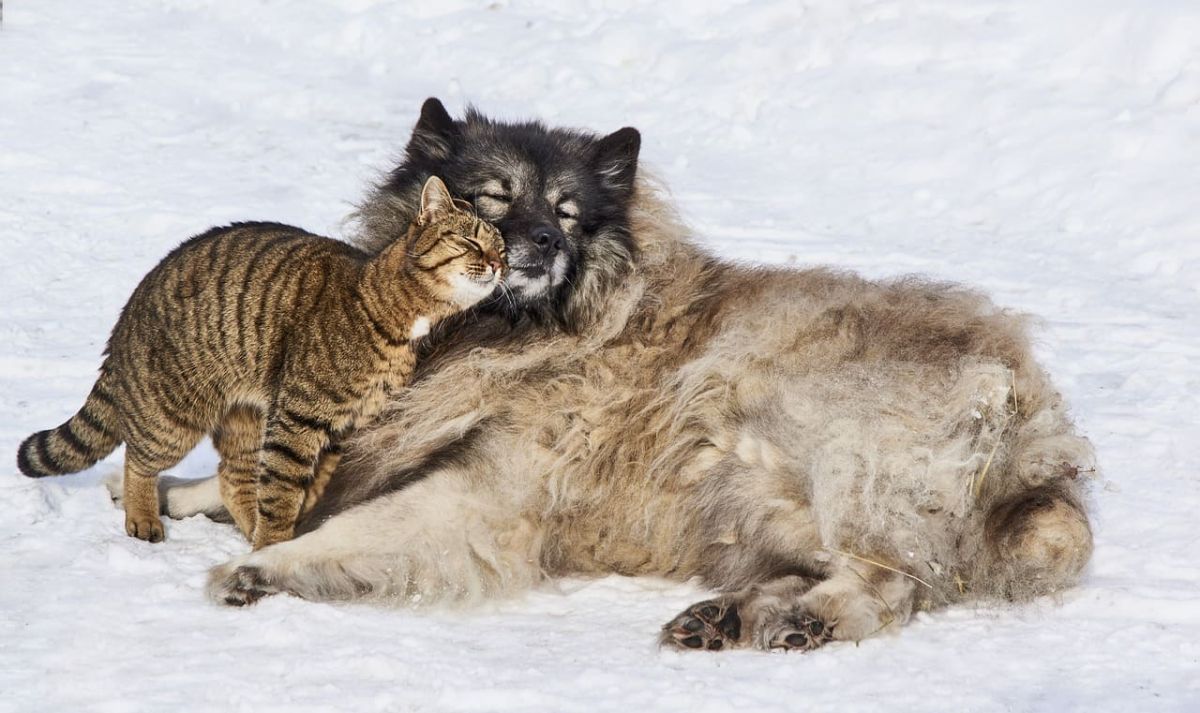What You Need to Know If Cats Can Really Recognize Their Own Name
 June 4, 2023
June 4, 2023
Cats have always held an air of mystery and independence, causing many pet owners to wonder if their feline companions recognize their own names. While cats may not exhibit the same level of responsiveness as dogs, research suggests that they can indeed distinguish their names from other words. However, training cats to respond consistently to their names can be challenging. So this is where this article comes in handy, as we will explore the evidence supporting cats’ name recognition and discuss effective strategies that pet owners can employ to train their cats.
Studies conducted on domestic cats have shed light on their ability to recognize names. A study conducted by Atsuko Saito and Kazutaka Shinozuka from the University of Tokyo demonstrated that cats can differentiate their own names from other words based on phonetic cues. The researchers conducted experiments where they played a series of words and the cats’ names in different orders. They found that cats consistently responded more to their own names compared to other words or the names of others in the household. This suggests that cats can indeed recognize and discriminate their names, although their responses may vary.
Although cats can recognize their names, their independent nature often causes them to initially ignore their owners or choose not to respond. Training cats to consistently respond to their names requires patience, persistence, and positive reinforcement. Here are some strategies that pet owners can employ:
![]() Start with a Positive Association: Associate the cat’s name with positive experiences by using it when offering treats or engaging in activities the cat enjoys. Over time, the cat will develop a positive association with their name, making them more inclined to respond.
Start with a Positive Association: Associate the cat’s name with positive experiences by using it when offering treats or engaging in activities the cat enjoys. Over time, the cat will develop a positive association with their name, making them more inclined to respond.
![]() Use Clear and Distinctive Tones: Cats are more likely to respond to names that are spoken in a clear, distinct, and high-pitched tone. By using a consistent tone when calling their name, pet owners can capture their cat’s attention and increase the chances of a response.
Use Clear and Distinctive Tones: Cats are more likely to respond to names that are spoken in a clear, distinct, and high-pitched tone. By using a consistent tone when calling their name, pet owners can capture their cat’s attention and increase the chances of a response.
![]() Vocal Cues and Rewards: Cats are highly sensitive to vocal cues, making it essential for pet owners to maintain a consistent tone and pitch when calling their names. Cats respond better to high-pitched sounds, so using an enthusiastic and melodic voice can capture their attention effectively. Additionally, offering rewards, such as treats or praise, when the cat responds to its name encourages it to repeat the behavior in the future.
Vocal Cues and Rewards: Cats are highly sensitive to vocal cues, making it essential for pet owners to maintain a consistent tone and pitch when calling their names. Cats respond better to high-pitched sounds, so using an enthusiastic and melodic voice can capture their attention effectively. Additionally, offering rewards, such as treats or praise, when the cat responds to its name encourages it to repeat the behavior in the future.
![]() Clicker Training: Clicker training, a popular method used with dogs, can also be adapted for training cats. This technique involves using a small clicker device that produces a distinct sound, followed by a reward. By associating the clicker sound with a treat, pet owners can train cats to respond to the clicker, which in turn helps them associate their names with positive outcomes. The clicker serves as a bridge between the name and the reward, reinforcing the desired behavior.
Clicker Training: Clicker training, a popular method used with dogs, can also be adapted for training cats. This technique involves using a small clicker device that produces a distinct sound, followed by a reward. By associating the clicker sound with a treat, pet owners can train cats to respond to the clicker, which in turn helps them associate their names with positive outcomes. The clicker serves as a bridge between the name and the reward, reinforcing the desired behavior.
![]() Be Consistent: Use the cat’s name consistently, especially when calling for their attention or during training sessions. Avoid using their name in a negative context, as this may create confusion and cause them to associate their name with punishment.
Be Consistent: Use the cat’s name consistently, especially when calling for their attention or during training sessions. Avoid using their name in a negative context, as this may create confusion and cause them to associate their name with punishment.
![]() Gradual Exposure: Start training in a quiet and distraction-free environment, gradually introducing more distractions as the cat becomes more responsive. This helps the cat focus on their name and reinforces their ability to respond even in stimulating environments.
Gradual Exposure: Start training in a quiet and distraction-free environment, gradually introducing more distractions as the cat becomes more responsive. This helps the cat focus on their name and reinforces their ability to respond even in stimulating environments.

An Authoritative Glimpse into the World’s Top Ten Most Popular Categories of Pets


Why Do Cats Squirm Before Pouncing


True Heartwarming Stories: The Unbreakable Bond Between Animals and Humans


Pets’ Interesting News and Anecdotes


Owning a Pet May Help Maintain Mental Health When We’re Over 65


Pet IQ Test: Explore Your Pet's Intelligence and Potential


Pet Insurance: A Must for Comprehensive Pet Protection


Instruction to PetSmart















